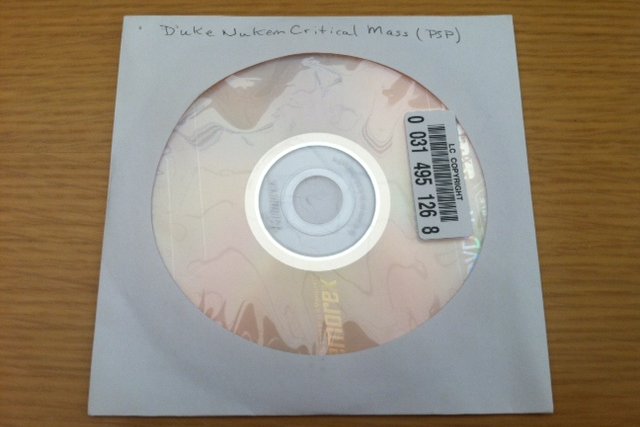Library of Congress claims to have found source code for unknown Duke Nukem game

The Library of Congress believes it has found the source code for the never-released version of the Duke Nukem: Critical Mass handheld game found among games filed for copyright registration, writes The Verge. Critical Mass launched on the Nintendo DS in 2011. It was originally supposed to be the start of a new trilogy, but she received terrible reviews, like her older brother Duke Nukem Forever.
Not surprisingly, the creation of the following games was curtailed. But David Gibson, a member of the Library of Congress, says in a blog post that he found a game that didn't see the release: a PSP version that is significantly different from his Nintendo version. Gibson is still trying to restore the game, but he has already found game music and put together a basic 3D model of Duke in a rocket pack.
In the United States, each work is automatically protected by copyright, but in order to sue for damage, authors must officially register their work in the Library of Congress by sending a copy of their book, game, film or other project that will be reviewed and possibly forever taken into storage. With the spread of digital materials, the Library has become one of the few places where ephemeral media is permanently stored, although not everything gets a place in the library archives. Video games and other hardware-dependent software that is time-sensitive and outdated are a particular concern for archivists, whether in the Library of Congress or the museum, or in a private collection.
Of course, even franchise fans were not impatient with the Critical Mass frames. The game, however, adds another chapter to the saga, whose mysterious ghost managed to return from year to year. Gamers spent more than ten years watching trailers and staff leaks from Duke Nukem Forever. When the game finally came out in 2011, it seems that there was nothing left in it that they had not yet seen. However, Duke apparently still has some secrets left. And the Library of Congress fulfilled its task of storing knowledge that the rest of the world would probably prefer to forget.

